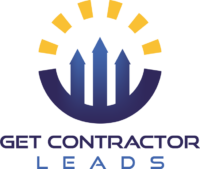
Effective Online Marketing Tips for Contractors in 2023
In the competitive world of contracting, establishing a robust online presence is no longer optional. As a contractor, you’re a master of your trade, but in the digital landscape, skills alone won’t capture the attention of potential clients. They need to find you first—and that’s where online marketing comes in. Let’s delve into some effective online marketing strategies that can elevate your digital footprint and help you connect with more clients.
Optimizing Your Website for Search Engines
To attract more eyes to your services, your website must appear in search results. This is where SEO comes in. Start with keyword research, using tools like Google Keyword Planner to discover what potential clients are searching for. Then, incorporate these keywords into your website’s content, titles, and meta descriptions.
Make sure your website is mobile-friendly, as more searches are done on smartphones than ever before. Don’t forget about local SEO—claim your Google My Business listing and ensure your contact information is consistent across all directories.
Understanding SEO
Search Engine Optimization (SEO) is the practice of increasing the quantity and quality of traffic to your website through organic search engine results. It’s about understanding what people are searching for online, the answers they are seeking, the words they’re using, and the type of content they wish to consume.
Practical SEO Tips for Contractors:
- Research Keywords:
- Use tools like Google Keyword Planner or SEMrush to find keywords that are relevant to your services.
- Look for a mix of short-tail keywords (like “roofing contractor”) and long-tail keywords (like “affordable roofing contractor in Atlanta”).
- Consider the searcher’s intent—what they might expect to find using those keywords.
- On-Page Optimization:
- Ensure that each page on your website has a clear, descriptive title tag and meta description. These are the snippets that show up in search results, so make them count.
- Use header tags (H1, H2, H3) to structure your content. Your main title should be H1, and subsequent subheadings should follow the hierarchy.
- Include your keywords naturally within your website’s content, especially in the first 100 words of your pages.
- Content is King:
- Google favors websites that provide valuable content to users. Regularly update your site with blog posts, how-to guides, or case studies.
- Use images and videos related to your work, and tag them with descriptive alt attributes.
- Mobile Optimization:
- Ensure your website is responsive, meaning it adapts to the screen size it is viewed on, providing a good user experience for mobile users.
- Use Google’s Mobile-Friendly Test tool to check if your website meets the criteria.
- Local SEO:
- Claim your business on Google My Business, and fill in every detail: from your address and phone number to your business hours and services offered.
- Encourage customers to leave reviews on your Google My Business profile.
- Embed a Google Map on your website’s contact page to help with local rankings.
- Speed and Security:
- Site speed is a ranking factor. Use tools like Google PageSpeed Insights to find out how you can make your site faster.
- Install an SSL certificate to switch your website to HTTPS, which is more secure and is another ranking factor.
- Backlinks:
- Backlinks, which are links from other websites to yours, are crucial for SEO. They act as a vote of confidence from one site to another.
- Earn backlinks by creating compelling content that others want to link to or by listing your business in reputable directories.
- Monitor Your Efforts:
- Use Google Analytics and Google Search Console to track your website’s performance.
- Look at metrics like page views, bounce rate, and average session duration to understand user behavior.
- Regularly check your rankings for your chosen keywords and adjust your strategies as needed.
SEO is an ongoing process. Search engines frequently update their algorithms, and competitors are also optimizing their sites, so it’s important to stay proactive and keep your website’s SEO up to date. By following these practical tips, you can improve your website’s visibility in search engine results, which is fundamental in leading potential clients to your contracting business.

Creating Valuable Content for Your Website
A blog can serve as a powerful tool to demonstrate your expertise. Write about common problems your clients face and how they can solve them, or showcase your past projects. This not only positions you as an authority but also improves your search engine rankings.
Video content is another excellent way to engage potential clients. A time-lapse video of your work, client testimonials, or a virtual tour of a finished project can make a substantial impact.
The Power of Valuable Content
In the digital age, content is not just king—it’s the entire kingdom. For contractors, valuable content not only boosts SEO efforts but also establishes your business as a trustworthy authority in your field. It can be the deciding factor for potential clients when choosing between you and your competitors.
What Constitutes Valuable Content?
- Educational Blog Posts:
- Write articles that address common problems or questions your clients might have. For example, a roofer might post “5 Signs You Need a Roof Repair” or “The Best Roofing Materials for Your Climate.”
- How-To Guides and Tutorials:
- Step-by-step guides on simple home maintenance tasks can be invaluable. A painter could offer “DIY Tips for Preparing Your Walls for Painting.”
- Case Studies and Success Stories:
- Showcasing your past projects and the problems you solved for other homeowners builds confidence in your work. Detailed case studies highlight your approach and the quality of your outcomes.
- Video Content:
- Before and after videos of your work, or educational videos where you share trade secrets can significantly engage users and keep them on your site longer, which search engines like Google value.
- Infographics:
- Complex information can be made simple through visual content. For instance, an infographic on “The Lifecycle of a Well-Built Deck” can deliver valuable insights in an easy-to-digest format.
- Interactive Content:
- Tools like cost calculators or design software that lets clients envision their renovations can make your website a go-to resource.
- Frequently Asked Questions (FAQs):
- An FAQ section that answers the most common inquiries can improve both user experience and SEO. It’s also a great place to naturally include relevant keywords.

How to Ensure Content Quality and Relevance:
- Understand Your Audience:
- Conduct surveys or use social media interactions to determine what content your audience finds most useful.
- Stay current with trends in home improvement and construction, and translate these trends into content topics.
- Content Planning:
- Have a content calendar to plan out your posts, ensuring a steady stream of fresh content.
- Use seasonal trends to your advantage—like preparing for winter or storm season in relevant regions.
- Professionalism and Authenticity:
- Content should be well-written, free of errors, and authentic. Avoid overly salesy language; focus on providing real value.
- Use real photos from your projects rather than stock images to give a genuine feel to your content.
- Optimization for Search and Social:
- While SEO optimization is critical, also create content that is shareable on social platforms.
- Use social media to amplify the reach of your content, encouraging shares and interactions.
- Engagement and Call-to-Action (CTA):
- Engage your readers by inviting them to comment or share their experiences.
- Include clear CTAs that guide readers on what to do next, whether it’s contacting you for a quote or reading a related article.
Measuring Content Effectiveness:
- Use analytics to measure the success of your content. Look at metrics such as page views, time on page, bounce rate, and conversion rates.
- Revise and repurpose content that isn’t performing well.
High-quality, relevant content can set your contractor website apart, turning visitors into leads and clients. By understanding your audience and focusing on their needs and questions, you can create a resource-rich website that serves as the first port of call for anyone needing contractor services in your area.

Leveraging Social Media
Social media is a great place to build relationships with your audience. Choose platforms where your potential clients are most active—LinkedIn for B2B connections, Facebook for a broad demographic, and Instagram for a more visual showcase of your work.
Remember, interaction is key. Respond to comments, ask for feedback, and participate in community discussions. And when ready, explore the world of paid social media ads to target your ideal customer demographics directly.
The Social Media Advantage
Social media has transcended personal connections and has become a dynamic tool for businesses, especially for contractors. The visual aspect of contracting work—be it remodeling, painting, landscaping, or any other service—makes social media an ideal platform to showcase your craftsmanship.
Building a Strong Social Presence
Creating a robust presence on platforms like Facebook, Instagram, and LinkedIn can greatly enhance your business’s visibility. Here’s how you can make the most of these tools:
Choosing the Right Platforms
Not all social media platforms are created equal, especially when it comes to contracting. Instagram, for example, is highly visual and great for before-and-after photos. LinkedIn, on the other hand, can help establish B2B connections and is a good platform for sharing industry insights and professional achievements.
Engaging Visual Content
Photos and videos of your projects should form the cornerstone of your social media content. A well-edited video showing the progression of a job from start to finish can be compelling content that captures attention and encourages shares.
Client Testimonials and Reviews
Social proof is powerful. Share testimonials and positive customer reviews to build credibility. Potential customers often turn to social media for reviews and recommendations, so having a positive presence can sway their decision in your favor.
Interactive and Timely Communication
Use social media to engage with your audience. Answer questions, respond to comments, and participate in relevant conversations. This interaction not only builds relationships but can also increase your visibility due to the algorithms that favor active user engagement.
Promotions and Offers
While the main goal is not to sell, social media can be an effective platform for promoting special offers or announcing new services. These posts can encourage direct inquiries and shares among your followers’ networks.
Consistency is Key
Maintain a consistent posting schedule to keep your audience engaged and informed. Regular updates about your business and projects can keep you top-of-mind when someone is ready to hire a contractor.
Measuring Your Impact
Track your success with built-in analytics tools to understand what content performs best. This data can help refine your strategy and focus more on what generates engagement and leads.

Email Marketing
Email marketing starts with a list. Encourage website visitors to subscribe by offering valuable resources, such as a free e-book or a discount. Send regular updates with content that adds value to their lives, like maintenance tips or design trends, keeping your services top of mind.
- Personalized Outreach: Email marketing remains a highly effective tool for businesses, including those in the contracting industry. It provides a direct line to potential and existing clients, allowing for personalized communication that can foster stronger connections and promote repeat business.
- Targeted Campaigns: With email marketing, you can segment your audience based on their interests, past projects, or how they’ve interacted with your previous emails. This means you can send tailored messages that are more likely to resonate with each segment, whether it’s promoting a new service or following up on a recent consultation.
- Cost-Effective Promotion: Emails can reach a large number of people at a relatively low cost, especially compared to traditional marketing methods. By using email marketing software, you can automate processes and save time, while also reaching out to a broader audience with minimal incremental cost.
- Driving Repeat Business: Regular newsletters can keep your company in the minds of past clients. Sharing updates, maintenance tips, or special offers for repeat customers can encourage them to think of you first for their next project.
- Analytics and Feedback: Most email marketing platforms offer detailed analytics, giving you insight into open rates, click-through rates, and conversions. This feedback can help you continuously refine your approach to better meet the needs and interests of your audience.
- Building Trust Through Education: Use email marketing not just to promote your services, but to educate your audience about home maintenance, the latest design trends, or how to prepare for a renovation project. Providing valuable content can position you as an expert in your field and build trust with your subscribers.
- Staying Compliant: Ensure that your email marketing practices comply with laws like the CAN-SPAM Act, which sets rules for commercial email, establishes requirements for commercial messages, and gives recipients the right to have you stop emailing them.
By investing in email marketing, you as a contractor can develop a more nuanced understanding of your client base while simultaneously nurturing leads and building loyalty with minimal investment. This personalized, cost-effective marketing channel can significantly amplify your business’s reach and influence, helping you grow and maintain a robust client list.
Reputation Management
Online reviews are the digital version of word-of-mouth recommendations. Actively seek feedback from satisfied customers and make it easy for them to review your work online. Address negative reviews professionally, showing that you value client satisfaction and are committed to resolving any issues.

Analytics and Adjustments
Understanding the behavior of visitors to your contractor website can be like having a roadmap to their preferences and needs. Integrating analytics into your website is a crucial step in gathering this valuable data. Here’s how it can help:
Identify User Behavior
Analytics tools, such as Google Analytics, provide deep insights into how users interact with your website. You can see which pages they visit, how long they stay, and what actions they take. This information is vital for understanding which services are attracting the most attention and where you might need to improve your content or navigation.
Track Conversion Rates
Knowing how many visitors you convert into leads or customers is essential for measuring the success of your marketing efforts. Analytics can show you the conversion paths and help you refine the user experience to guide more visitors towards making inquiries or bookings.
Improve User Experience
Data from analytics can inform you about any pain points in your website’s user experience. For instance, if you have a high drop-off rate on your contact page, it may indicate that the form is too long or confusing. Making data-driven decisions to enhance the user interface can lead to a higher conversion rate.

Optimize Marketing Strategies
Analytics let you see which marketing campaigns are driving traffic to your site. This insight enables you to invest more in the campaigns that work and modify or discontinue those that don’t, optimizing your marketing budget.
Tailor SEO Efforts
With analytics, you can find out which keywords are bringing visitors to your site and which pages rank higher in search engine results. You can then fine-tune your SEO strategies to capitalize on what’s working and improve your rankings for other relevant keywords.
Monitor Trends
Analytics tools allow you to track trends over time, which is particularly important for seasonal businesses like contracting. You can identify when interest in certain services spikes and plan your marketing and staffing accordingly.
Understand ROI
Ultimately, analytics help you understand the return on investment for your website and marketing efforts. By tracking which areas are generating leads and converting customers, you can ensure that your marketing budget is being used effectively.
The digital marketing world can be complex, remember that generating high-quality leads is a crucial part of the equation—something we understand deeply. If you’re looking for tailored strategies or need a steady stream of potential clients, reaching out for expert help can set you on the path to digital marketing success.
As you continue to refine your strategies and grow your online footprint, remember that a steady stream of quality leads like exclusive leads or pay-per-lead is the lifeblood of any thriving contracting business. If you’re poised to elevate your operations and ready to connect with homeowners who are actively seeking your expertise, we’re here to bridge that gap. Let us equip you with reliable contractor leads, so you can focus on what you do best — delivering top-notch services to your customers.
